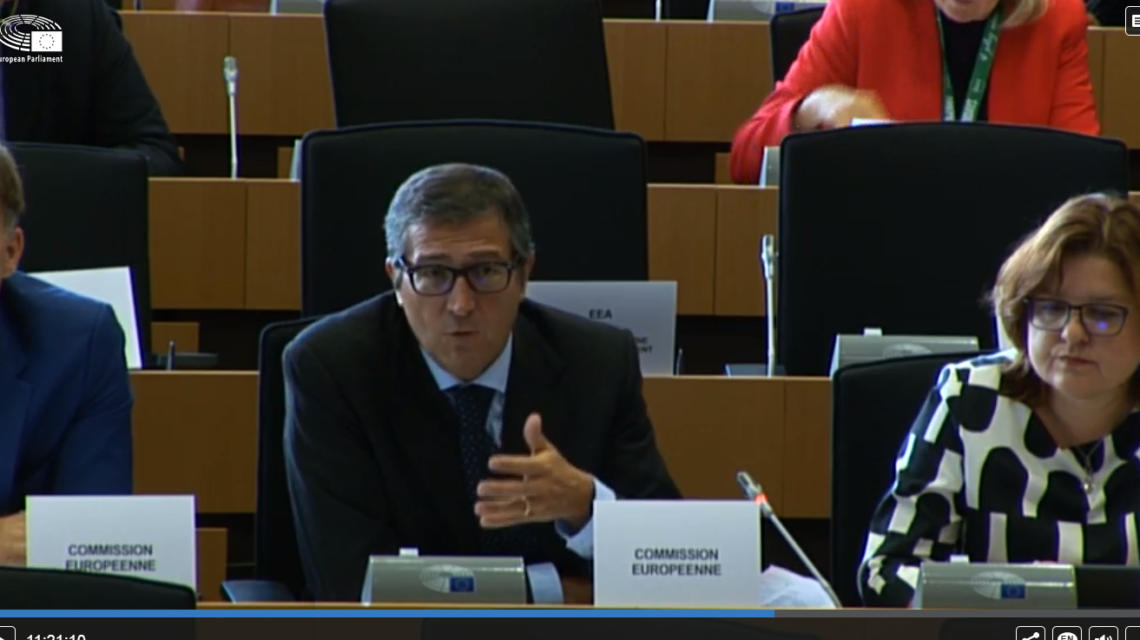On 4th September, the ENVI Committee of the European Parliament had constructive exchange of views with Mr Carlo Petinelli, Director for Consumer, Environmental and Health Technologies of DG GROW and Kęstutis Sadauskas, Director for Circular Economy and Green Growth of DG ENVI, dedicated on the recently finalised Fitness Check of the most relevant chemicals legislation (excluding REACH) and identified challenges, gaps and weaknesses.
During this exchange, EU Commission representatives summarised the main findings of the report, pointing out the achievements made by the EU, as well as the strengths and weaknesses of the EU chemicals regulation and how to do more in this area. The report generally concludes that the chemicals legislation is fit for its purpose and with high added value. Yet, a number of challenges to tackle in the new political period have been mentioned and discussed with the EP legislators.
The discussion between the two institutions has been carefully followed and analysed by ECRN due to its importance for our members and their chemical companies.
- Improvement in the implementation and enforcement of the EU chemicals legislation
The European Commission admits the need to improve efficiency when it comes to the implementation and enforcement of the legislation. Yet, more detailed data on hazardous chemicals, their uses and exposure is needed. One the solutions, mentioned by Mr. Sadauskas, is to apply a so called “grouping approach” where all chemicals of one group are evaluated together, rather than in an isolated context and individually.
Hence, besides clarity in the legislation, the European Commission is well aware of the need for consistency of regulatory measures as well as for better communication and information – especially towards small companies, as reminded by the MEPs.
- Faster procedure and better risks management for hazardous chemicals
Hazardous chemicals were at the heart of the Parliament’s concerns, as deputies are pushing for faster procedures to ensure better reaction and management of risks. On the other side, the president-elect of the European Commission, Ursula von der Leyen, aims to tackle hazardous chemicals and endocrine disruptors as part of the ambition to achieve Zero-pollution Europe. This means that new legislative proposals can be expected by the new Commission in the field of the chemical legislation, influencing company decisions and national legislation.
- Sustainable chemicals legislation and stronger support to green chemistry
MEPs are, in that sense, asking for sustainable chemicals legislation and equally, they called for a chemical industry that delivers resource and energy efficiency and that contribute to decarbonisation through the use of CO2 as feedstock. The European Commission agrees and further highlighted that stronger support to green chemicals will be critical on the sustainability and competitiveness of the EU chemical industry in the future.
- ECHA action plan to be launched and further steps to be undertaken by the new Commission
European Commission representatives announced the publication of a new ECHA action plan, in the very near future. Receiving constantly high number of files, ECHA will start as soon as possible with the implementation of this new action plan, leading to further improving the assessment of files submitted to the Agency.
Besides, as a reply to MEPs request for Food Contact Material legislation, the Commission reported on the ongoing study that will be published once completed.
This fitness check is only a first step into improving EU chemicals legislation. After analysing and identifying the gasps in the legislation, the role of the new Commission will be to answer the reported challenges and act on efficient solutions. Overall, the Commission supports a broad reflection on the future of the Chemicals Policy.
For more details on the exchange, you can watch the live streaming of the meeting through this link.



